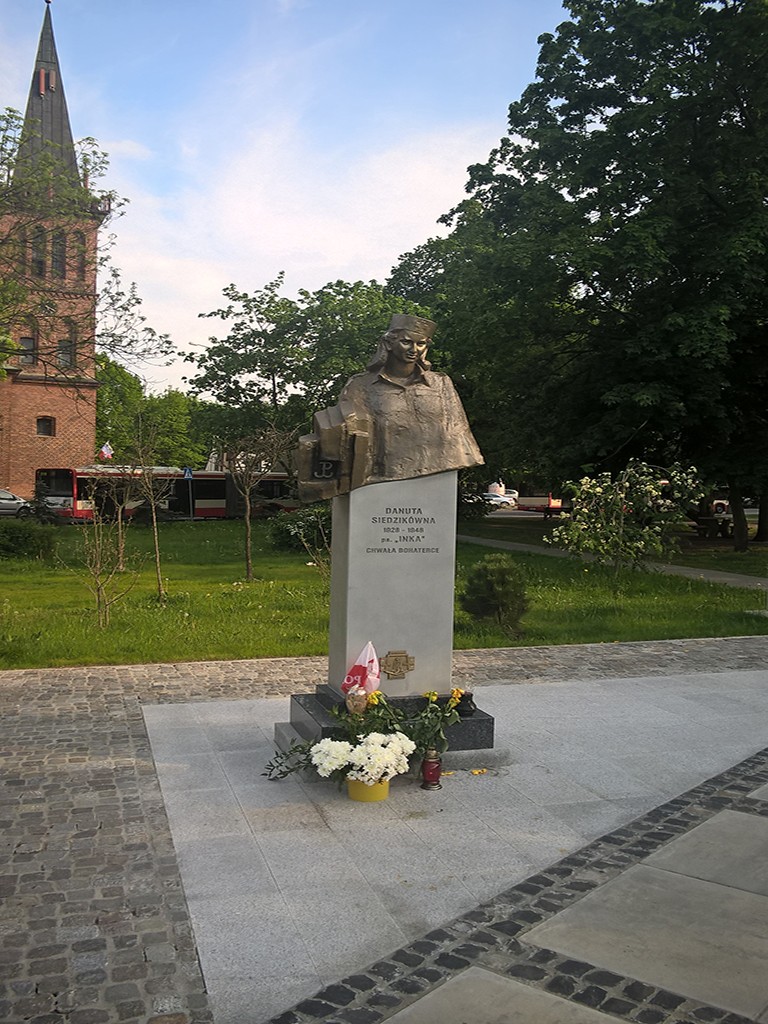In 2015 a monument was raised in Gdansk-Orunia to the memory of Danuta Siedzikówna, who spent her short life as a freedom fighter for the independence of Poland. Before, during and after the Second World War she was opposed to the German, Russian and communist occupiers of her home land. Danuta was executed in 1946, shortly before her 18th birthday.
Danuta Siedzikówna became an orphan when she was only 15 years old. Her father had been deported to Russia, her mother was killed by the Gestapo in 1943. Danuta then enlisted the Polish Home Army, the armed resistance movement, that was loyal to the Polish government in exile in England. She chose ‘Inka’ as nom de guerre, a reference to the powerful and almost invincible Inca-people in former Peru. After some training she worked as a medical orderly.
In June 1945 she was arrested by the Russian NKVD for collaboration with the anti-communist underground. On 28 August 1946, six days before her 18th birthday, she was executed in the City Prison in Gdansk. After the fall of communism, Danuta and her fellow combatants were pardoned, which resulted, finally, in the erection of this Inka Monument for Danuta.
The monument is composed of a bust by Andrzej Renes of ‘Inka’. It is placed on a rectangular pillar bearing her name, dates of birth and tragic death, and the sign “Glory to the heroine”. The money for the monument was raised by the citizens of Gdansk. The unveiling of the monument took place on 30 August 2015, almost a year after her mortal remains were found in the Military Cemetery of Gdansk.
